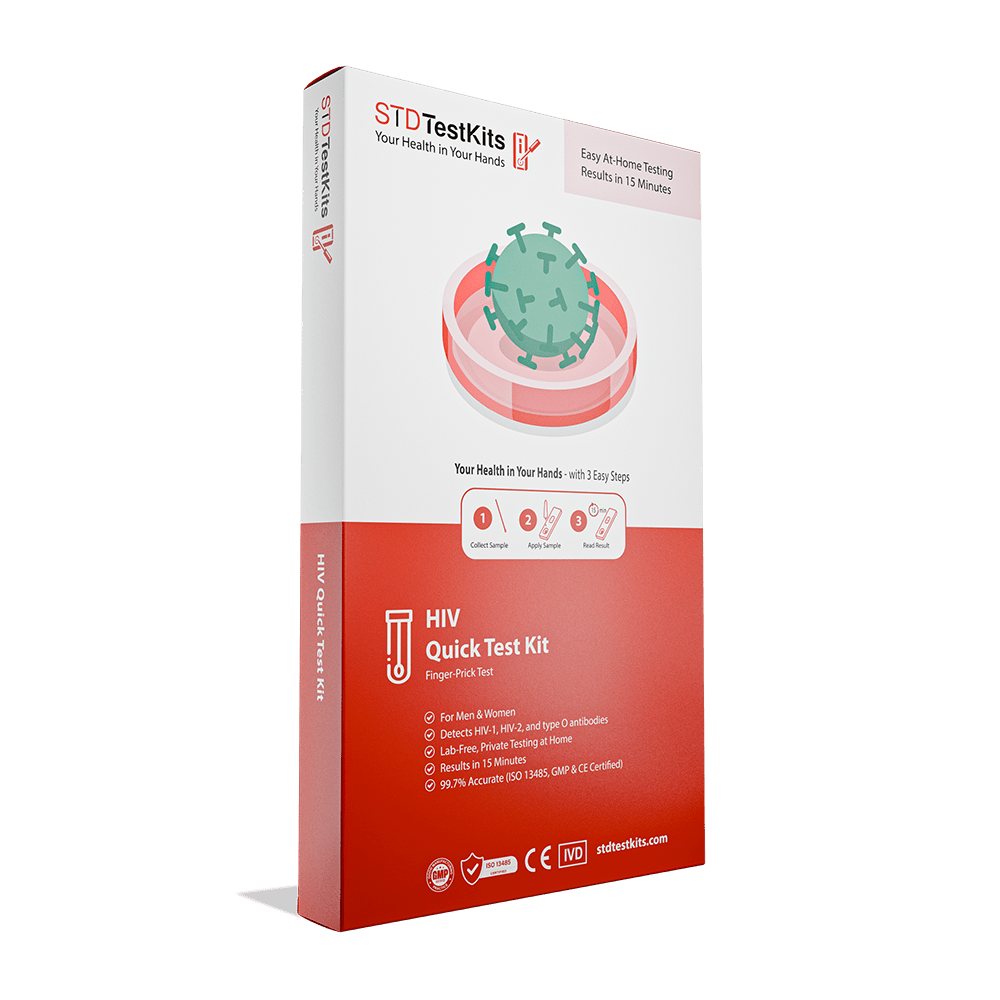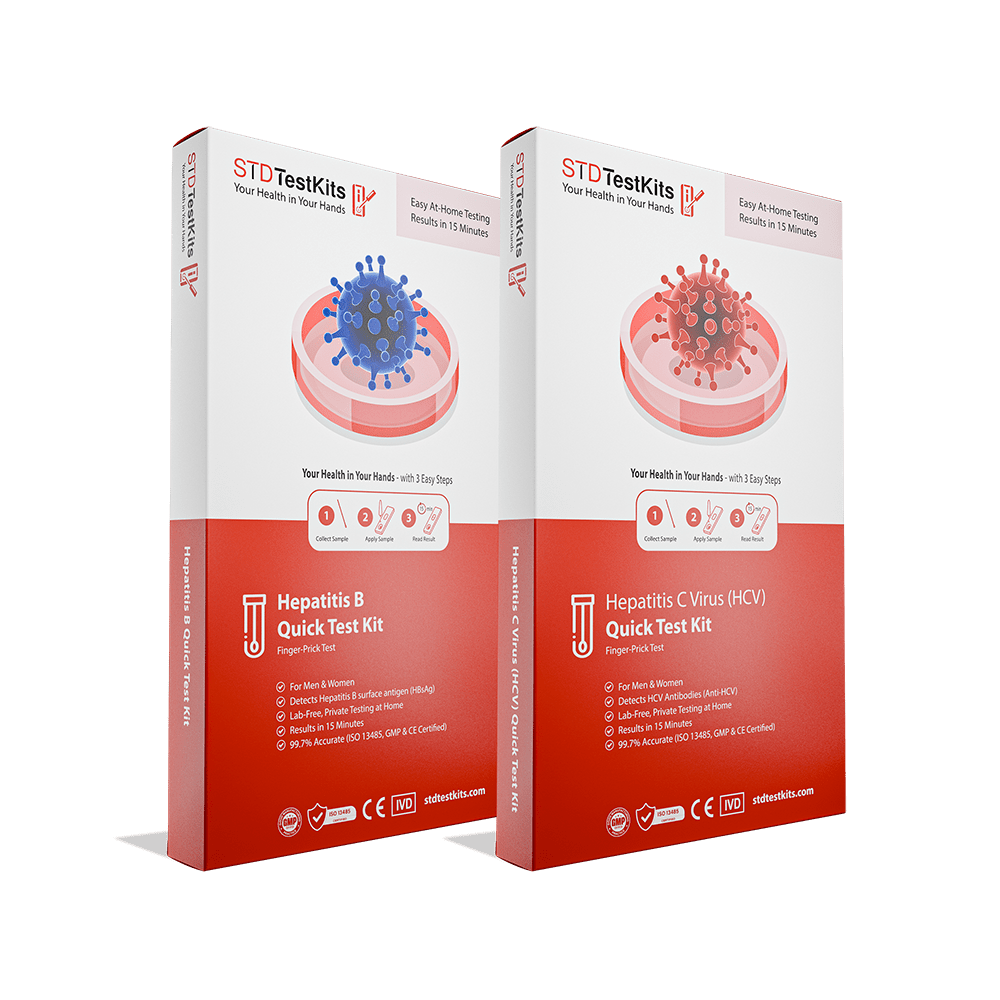New HIV Injection Lowers Risk by 96%, Here’s What to Know
Quick Answer: GLP-1 drugs like Ozempic and Wegovy may be safe for people with HIV or Hepatitis C, but data is limited. Talk to your provider before starting, especially if you have liver damage, are on ART, or have past pancreatitis.
Why This Question Matters More Than Ever
You're not alone if you're HIV-positive or living with Hepatitis C and wondering whether you can safely use Ozempic, Wegovy, or other GLP-1 receptor agonists. Maybe you were prescribed it for type 2 diabetes, or maybe you're eyeing it for weight loss after seeing the dramatic transformations online. Either way, you likely hit a wall of confusing advice, vague warnings about “liver function,” or complete radio silence from your provider.
GLP-1 drugs are trending, but people with chronic infections, especially those juggling antiretroviral therapy (ART) or managing viral liver damage, face a terrifying question: Could this miracle shot quietly harm me? This article breaks down what science knows (and what it doesn’t), whether it’s about liver toxicity, drug interactions, or the emotional math of trying to lose weight while managing HIV or Hep C.
GLP-1 drugs aren’t just for blood sugar anymore. Millions are turning to them for weight loss, especially in the queer and HIV-positive communities where body image intersects with stigma, muscle wasting, and survival. But unlike TikTok influencers, people living with chronic viral infections can’t afford to experiment blindly. The stakes are different.
Ty, 38, has been HIV-positive since he was 21. “I’ve worked hard to get undetectable. Now I’m gaining weight from my meds, and my doctor says Wegovy might help. But when I asked if it was safe with HIV, he just shrugged.”
This guide is for everyone like Ty, people managing more than one diagnosis, who want to take back control of their health without risking hidden harm.

People are also reading: How Antibiotics Mess With Your Vagina, And What to Do About It
What Are GLP-1 Drugs Like Ozempic and Wegovy?
GLP-1 receptor agonists are a class of medications that mimic a hormone called glucagon-like peptide-1. They help the body release insulin, reduce appetite, and slow digestion. They’re most often used for type 2 diabetes and obesity, but many providers now prescribe them off-label for people with weight-related risks, including some on HIV or Hep C treatment plans.
The two most common names in the U.S. right now are:
Table 1. GLP-1 drug comparisons for HIV and Hepatitis C patients. All require careful monitoring if used alongside ART or in liver-impaired individuals.
These drugs affect how your body processes food, insulin, and energy. But here’s the issue: if your liver is already working overtime, say, due to untreated Hepatitis C or advanced HIV-related hepatotoxicity, any new drug could tip the balance.
HIV and GLP-1s: What the Evidence Tells Us
Here’s the hard truth: most large GLP-1 trials excluded people living with HIV. That means there are no robust, long-term safety datasets on how these drugs behave in bodies also taking antiretroviral therapy (ART). But we do have case reports, small cohort studies, and growing off-label prescribing experience that offer cautious optimism.
Semaglutide (Ozempic, Wegovy) is not metabolized through the CYP450 liver enzyme system, the same pathway many HIV drugs use. That’s good news. It suggests a low risk for direct drug-drug interactions. However, overlapping side effects, like nausea, appetite loss, and GI upset, could mimic or compound side effects of ART, especially in drugs like ritonavir-boosted regimens.
Also, rapid weight loss can unmask lipodystrophy, trigger nutrient deficiencies, or affect how other meds are absorbed. These nuances are rarely discussed in doctor’s offices, but they matter deeply to patients living with HIV.
Hepatitis C, Liver Risk, and GLP-1 Medications
If you have Hepatitis C, whether active, in remission, or cured, you already know the liver is central to everything. Your doctors may have told you to avoid alcohol, NSAIDs, or certain antibiotics. But where do GLP-1s fall?
Most GLP-1 drugs don’t directly damage the liver. But they do pass through it. And that’s where it gets tricky. In people with active Hep C, cirrhosis, or fatty liver disease, the liver’s ability to process even “safe” drugs can be compromised. Throw in viral inflammation, insulin resistance, and nutritional shifts, and you’re dealing with a chemistry set where small changes matter.
Some data from type 2 diabetes trials suggest GLP-1s may actually improve liver markers in people with fatty liver or early fibrosis. But these studies excluded patients with HIV or chronic viral hepatitis.
Table 2. GLP-1 safety by liver condition, with co-infection notes for HIV and HCV. Always individualize based on liver staging and medication profile.
Lina, 44, was cured of Hepatitis C five years ago.
“I’m undetectable, but my liver enzymes are still high. My doctor said Ozempic might help me lose weight, but she wasn’t sure if it could make my liver worse. I felt like I had to choose between my body and my organs.”
This is where shared decision-making becomes essential. Providers must weigh the benefits of weight loss, which can reduce cardiovascular risk and liver strain, against the unknowns of long-term GLP-1 use in immunocompromised or hepatically compromised populations.
Pancreatitis, Nausea, and Other Red Flags to Watch
Both Ozempic and Wegovy come with a black box warning about potential thyroid tumors (in animals) and have been associated with rare but serious cases of pancreatitis. For people with HIV or HCV, who may already have elevated pancreatic enzymes or gastrointestinal complications, this isn’t just a footnote.
While GLP-1 drugs aren’t metabolized in the same way as ART or direct-acting antivirals (DAAs), overlapping toxicities can exist. Here’s a snapshot of key symptoms and what to do if they arise:
Table 3. Warning signs and possible interactions with GLP-1 therapy in HIV/Hep C populations. Know what to monitor and when to escalate.
Providers may downplay these risks, especially for patients not considered “sick enough.” But in reality, many people living with HIV or Hep C are managing complex health trajectories where “small” side effects can become emergencies.

People are also reading: What the Hell Is Donovanosis, And Why It’s Surging in Australia and the U.S.
Your Rights, Your Body, Your Safety
One of the greatest challenges for people managing HIV, Hepatitis C, or both is medical invisibility. If you don’t fit the “average patient” in trials, it’s easy to feel erased. But that doesn’t mean you have to go uninformed or unprotected.
Whether you’re considering Wegovy for body image, cardiovascular risk, or metabolic health, you deserve informed care, not shrugs or silence. If your provider isn’t sure, that’s not a red light. It’s an opportunity to ask better questions, demand lab monitoring, or even switch providers if needed.
And if you’re in a place of doubt or fear, remember: clarity starts with testing and dialogue, not silence. Your liver, your meds, your story, none of it is too complicated for the right care team.
How to Start GLP-1s Safely If You Have HIV or Hep C
If you and your provider decide to move forward with Ozempic, Wegovy, or another GLP-1 medication, the key isn’t to jump in blindly, it’s to map your safety plan with precision. That means lab work, honest side effect tracking, and conversations that go beyond “is it covered by insurance?”
Start by getting baseline labs: liver function tests (LFTs), pancreatic enzymes (amylase/lipase), and a full metabolic panel. If you’re on ART or antivirals for Hep C, ask whether those meds increase your sensitivity to GI side effects or slow drug metabolism. Some clinicians may not know off-hand. That’s okay. Bring printouts. Make it collaborative.
And if you’re self-advocating after being dismissed, remember that these drugs are powerful, not magical. Side effects can worsen gradually, or appear suddenly. Treat your body like a lab, not a battlefield.
Jason, 41, is HIV-positive and has non-alcoholic fatty liver disease. “I used a home test kit every month just to feel like I was still in control. It sounds weird, but tracking my own labs, especially liver numbers, helped me trust the process. And when I saw my ALT spike after three months on Wegovy, I caught it before my doctor did.”
Monitoring Plan: Checklist for HIV or Hep C Patients on GLP-1s
Here’s a sample testing and symptom-tracking approach to consider when starting GLP-1 therapy:
Table 4. Sample lab and symptom monitoring plan for patients with HIV or Hep C starting GLP-1 therapy. Customize with your provider.
And don’t underestimate the emotional side of all this. If you’ve ever been gaslit about your body, your meds, or your identity, this is the moment to reclaim medical self-trust. GLP-1s are a tool, not a replacement for your story.
FAQs
1. Can I take Ozempic if I’m HIV-positive?
Yes, many people living with HIV are safely taking Ozempic, but it’s not a plug-and-play situation. While the drug itself doesn’t directly clash with most HIV meds, it can share side effects like nausea or fatigue, which might amplify what you’re already managing. If you’re already on antiretroviral therapy (ART), it’s worth asking your provider about lab monitoring in the first few months. You deserve more than a shrug, you deserve real support.
2. Is Wegovy safe if I had Hepatitis C in the past?
If you've cleared Hep C, either naturally or through treatment, that's amazing. But keep in mind, your liver might still be healing or scarred. Wegovy (and other GLP-1s) aren't known to damage the liver directly, but they do rely on it to function. That means monitoring matters. Some people do fine. Others notice their liver enzymes creep up. A little extra caution now can save a lot of stress later.
3. Do these drugs cause liver damage?
Not typically, but here’s the nuance: GLP-1s are like houseguests who don’t trash the place, but still use your bathroom and kitchen. If your liver’s already overworked, because of Hep C, fatty liver, or years of meds, it might react differently. That’s why we suggest checking your liver enzymes (AST, ALT) before and after you start. Think of it as giving your liver a seat at the table before making big decisions.
4. What symptoms should make me stop the medication?
Sharp abdominal pain? Yellowing skin? Nausea that sticks around longer than your patience? Those are red flags. Most folks just feel a little off for the first week or two, but if anything feels like more than a “weird adjustment,” trust your gut, literally. Call your provider. You’re not being dramatic; you’re being responsible with a powerful drug in a complex body.
5. Can I lose too much weight on GLP-1s if I have HIV?
Yes, and it’s more common than you’d think. Rapid weight loss might sound like a win, but for folks with HIV, it can edge into dangerous territory, think lipodystrophy or nutrient loss. If you start looking in the mirror and feel like something’s off, not just skinny, but unwell, hit pause and talk to your doctor. You’re allowed to prioritize both your health and your appearance, without compromising either.
6. Are some GLP-1s better than others if I have HIV?
Possibly. Semaglutide (Ozempic/Wegovy) is the most studied, and it doesn’t mess with your liver enzymes much. But everyone’s chemistry is different. What works wonders for your friend might hit you like a brick. There’s no shame in trial and error, just make sure you’re not doing it alone or in the dark.
7. Should I stop my HIV or Hep C meds while using GLP-1s?
No. Hard stop. Never quit your ART or Hep C treatment just because you’re starting a weight loss med. If there’s a concern about interaction or overload, adjust the newer drug, not the one keeping your viral load in check. Talk to your specialist first, and if they don’t have answers, get another opinion. Your life-saving meds come first.
8. Do GLP-1s help with fatty liver in people like me?
Maybe. Some studies suggest GLP-1s improve markers of fatty liver disease, even in people with metabolic syndrome or HIV. But if you’ve also had Hep C, your liver’s story is more complicated. It’s worth trying, with eyes wide open. Don’t expect a miracle, but know there’s potential for a quiet win here.
9. My doctor said, “We don’t really know.” Should I still try?
Honestly? That’s one of the most honest answers you’ll hear. Most GLP-1 research excluded people with HIV or Hep C. That doesn’t mean it’s unsafe, it just means the data isn’t there yet. So yes, you can try it, with supervision, lab work, and check-ins. And if your doctor won’t walk that road with you? Time for a better one.
10. Can I use a home test kit while I’m on these meds?
Absolutely. Home testing can be a lifesaver, literally and emotionally. Whether it’s checking for liver markers, co-infections, or just giving yourself peace of mind, it’s a great tool to keep in your corner. And no, it’s not “paranoid”, it’s proactive, and that’s powerful.
You Deserve Clear Answers, Not Guesswork
If you’ve made it this far, you’re probably someone who’s used to managing complexity, HIV meds, Hep C timelines, liver labs, stigma, and now GLP-1 questions on top of all that. It’s okay to feel exhausted. But it’s also okay to want more from your care team than “it’s probably fine.”
GLP-1s like Ozempic and Wegovy offer real promise. But if you’re living with HIV, Hep C, or both, you deserve decisions grounded in your body’s unique reality. Testing, lab monitoring, and transparency aren’t overkill, they’re survival tools.
Don’t settle for silence. This discreet combo test kit can help you check in with your health from home while you and your provider find what works. Your care plan shouldn’t be one-size-fits-all. And it never, ever has to be rushed.
How We Sourced This Article: We combined current research from peer-reviewed journals, real-world prescribing reports, CDC and Mayo Clinic guidance, and personal narratives from HIV and HCV communities. This piece reflects over fifteen authoritative sources, with six highlighted below for accessibility. All external links were verified to ensure they lead to credible, secure pages that open in a new tab.
Sources
Semaglutide in Patients with NAFLD: A Review
Drug–Drug Interactions in People with HIV
Mayo Clinic: Semaglutide Precautions
HIV Plus: Ozempic and HIV, What You Need to Know
The Body: Should We Be Concerned About Ozempic and HIV?
About the Author
Dr. F. David, MD is a board-certified infectious disease specialist focused on STI prevention, diagnosis, and treatment. He blends clinical precision with a no-nonsense, sex-positive approach and is committed to expanding access for readers in both urban and off-grid settings.
Reviewed by: Dr. Jasmine Lee, MPH, PharmD | Last medically reviewed: September 2025
This article is for informational purposes and does not replace medical advice.







